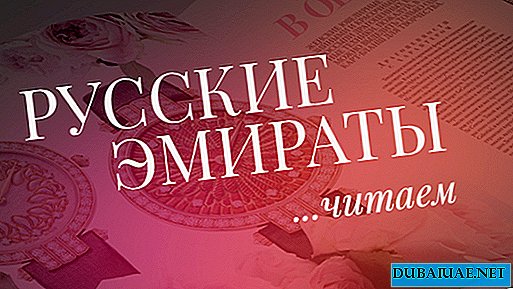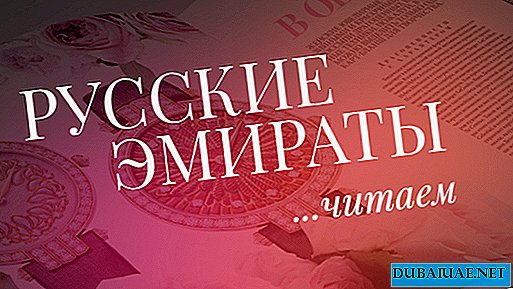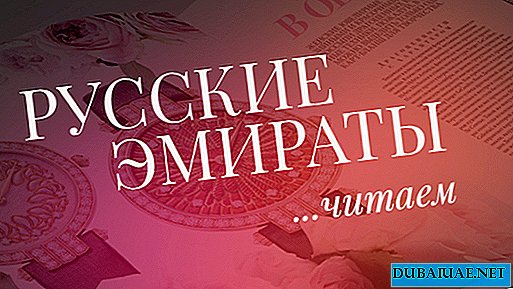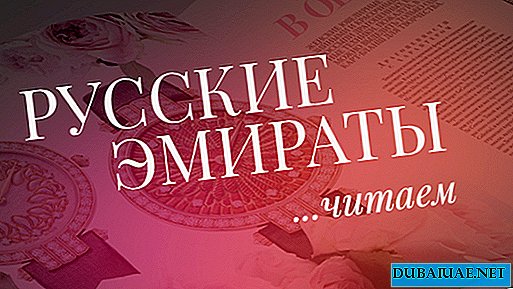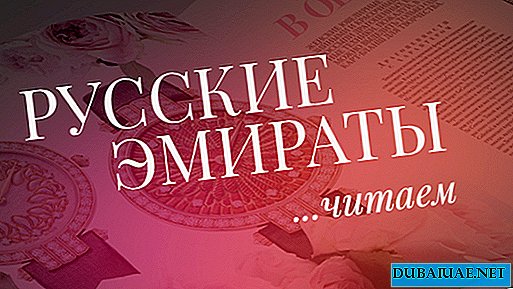 Interviewed: Natalia Remmer
Interviewed: Natalia Remmer The largest literature festival in the Middle East, held annually in Dubai with the support of Emirates Airline, the national carrier of the United Arab Emirates, this year was held from March 5 to 9 at the Dubai Festival City.
By tradition, an extensive educational program and presentation of new publications awaited guests. A special gift was prepared for our compatriots: for the first time this year, a Russian-language writer came to the festival, who became a classic of the detective genre, namely Grigory Chkhartishvili, better known to the reader as Boris Akunin.
The author of the famous adventures of Erast Fandorin spoke about modern society, first impressions of Arab culture and his own creative searches.
Grigory Shavlovich, good afternoon. Welcome to Dubai! So, what are your first impressions of our wonderful corner of the Arab world?
The impression is strange. Everything is very interesting, unusual. Before coming here, I, of course, read about the history of Dubai. When I imagine that half a century ago there was nothing at all here, I get a strange feeling. A sense of temporality, fragility and cockiness of our civilization. Arrogance - in the desire to build the tallest building in the world, for example. This is touching on the one hand, and on the other, you understand that at any moment everything can break. My colleagues and I went to the desert yesterday. And you know, every Englishman here feels like Laurence of Arabia, in each one you feel a longing for the past Britain and the era of conquering deserts.
And how do you feel when you look at Russia from here?
Horror! I am terrified. When I looked at the weather forecast, I saw that in Moscow it would be minus 17 degrees when I fly. I understand that you can’t live like that. But even with plus 35, I would not be able to work either: my brains melt, and I always want to sleep.
You wrote a lot about the era of the late XIX - early XX centuries in Russia. A hundred years have passed. As you know, history has the property of repeating itself. Do you see any parallels with today? After all, they cannot be overlooked.
There are parallels, and very interesting. Lots of similarities. Approximately the same alignment of political forces. The general politicization, as well as 100 years ago. We all remember, or maybe we don’t, remember how it all ended at that time. I would not want Russia to go the same way.
What political regime do you consider the best for Russia?
My strong belief is that this must be a democratic system. Of course, he will not be perfect. It is a lot of problems. But it will be the best for the middle class, those who want life in society to be organized according to the rules, who are interested in the rule of law.
But shouldn't society regulate these processes, create appropriate institutions?
The state, of course, should not interfere. Officials should set an example of decent behavior. But no one needs to be brought up.
Since politics can be argued endlessly, let's return to the topic of literature. Where do your books best diverge abroad?
It's not bad in England. Oddly enough, in the former socialist countries, which, it seems, do not really like everything Russian. We have a very serious general cultural baggage. Since in my books a lot is built on parallels with Russian classical literature, in far abroad this is not very read. For example, in Poland, Bulgaria, Serbia they know and understand me better. But I don’t have any translations into Arabic.
What kind of literature would you recommend to the young generation of Russians living abroad so that they can get the right idea of both Russia itself and its history?
Russia is a great literary power. If we take the dry residue, then the best that Russia has presented to the world is Russian classical literature of the 19th century. We have composers, but they are both in Italy and in France. The same with artists. But there are no writers of the level of Tolstoy and Dostoevsky.
Today we are not writing well enough to be read in the world. It would be great if the whole world read Russian writers, then our country would be treated better. Therefore, I want to say to young people: read the classics, gentlemen, - Tolstoy, Dostoevsky and Chekhov, and to learn history - Vasily Osipovich Klyuchevsky.
Thank you very much for the recommendations, Grigory Shavlovich, we do not forget about the classics. And all the best to you, we look forward to your new works.



